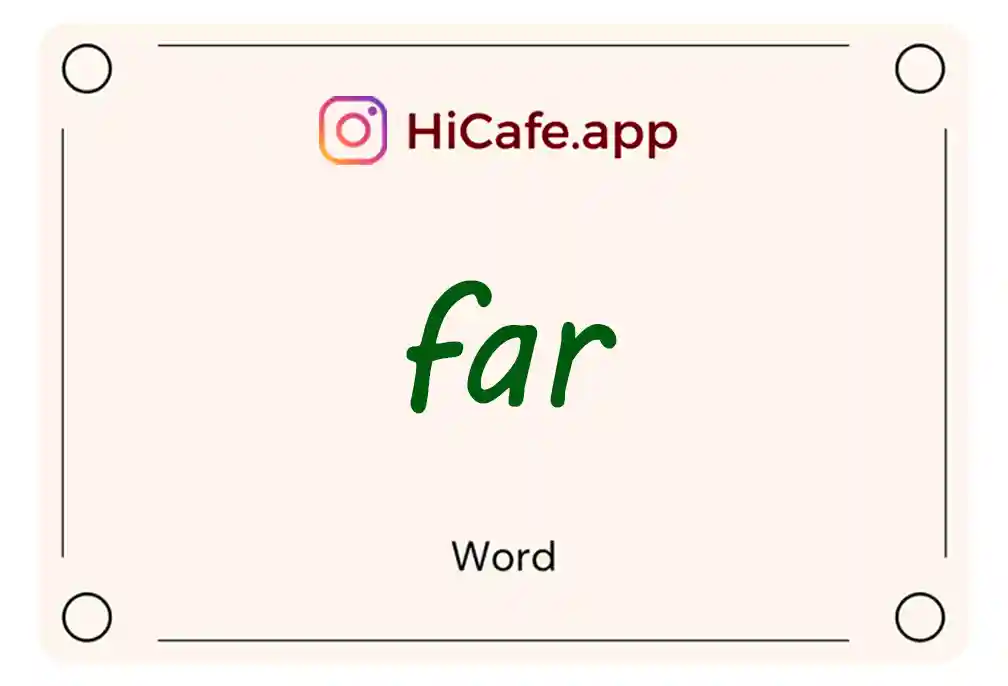
Word of the Day: Far
The word “far” is used when describing a point in time or distance:
- How far is it to the train station?
- Binte travels very far every day to get to work.
- The place you are looking for is not too far away.
- China is very far from the United States.
- Charles has traveled far and wide. (He has traveled to many places long distances away.)
- You’re too far from the microphone. Move closer.
- How much money have you made so far today? (so far = up to now)
- So far so good. (This is an expression meaning up to this point in time everything is okay.)
You can also use “far” to describe a person’s movement within an organization, a company, or a school:
- Yusuf didn’t go far enough in his education, and now he’s back in school.
- Wes is likely to go far within the company because he’s so bright.
- Vanessa feels satisfied that she’s gone so far in her career.
- In some countries, girls aren’t allowed to go very far in school. After eighth grade, their education might be finished.
“Far” is also used to describe demands, requests, and behavior
- The students pushed the teacher too far. She gave everyone in class a detention.
- That’s far enough. You’ll have to stop what you’re doing.
- Members of the community don’t believe the man’s punishment went far enough.
- The hostage takers went too far in asking for money and a getaway car.
- How far will the employees be allowed to go in their labor negotiations?
The comparative form for this word is “farther.” The superlative form is “farthest.”
- How much farther do we have to drive?
- Which student in this class comes from a country that is the farthest from the United States?
Essential English Dictionary
Visit the Popular English Words Beginning with F page to see the list of all words starting with letter F. For seeing the HiCafe dictionary, visit the Popular English Words with Meaning page.


